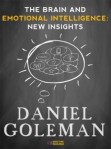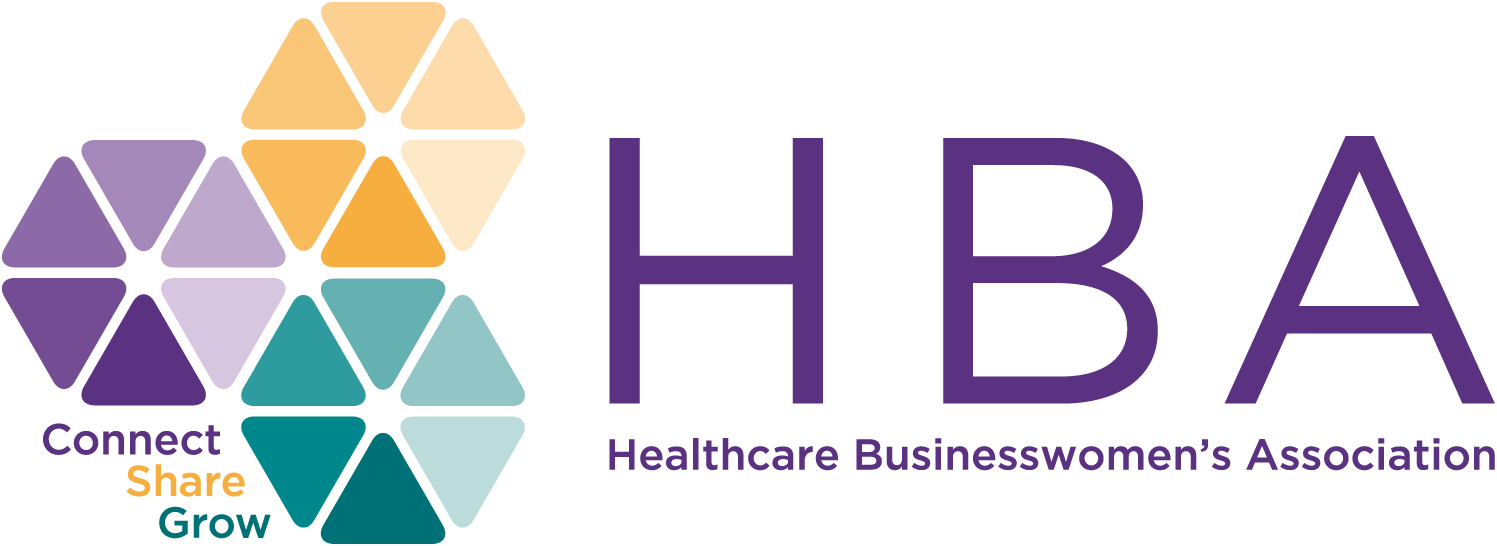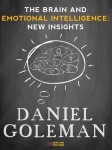Book Review by Jennifer Ringler

In his new book, best-selling author Daniel Goleman writes, “In order to make a good decision, we need to have feelings about our thoughts.” The ideas and science he covers here are particularly important in the current industry climate—good decision-making is absolutely crucial for leaders in healthcare and pharma today.
Following his widely known 1995 book, Emotional Intelligence, Daniel Goleman recently released The Brain and Emotional Intelligence: New Insights, which expands upon much of the material in the original.
Working as leaders in healthcare, chances are that someone in some department at your current company probably knows something about brain biology. This new e-book (soon to be available as audio book and print-on-demand) is a chance for those of you who are in leadership positions within the industry to put that knowledge to use in your own personal and professional development.
Though this book seems to be a continuation of his previous work and research, it is thorough and self-contained enough to be useful as a stand-alone resource. The book discusses the brain biology behind the elements of emotional intelligence (EI), including self-awareness, empathy, emotion management, and creativity. “Most of the new studies are being done with brain imaging. In fact, emotional intelligence, which is a psychological construct, like other subjects in psychology, is increasingly becoming a sub-discipline of brain research,” Goleman said in an interview. “Psychology is being subsumed by neuroscience. This is happening because—as people in healthcare and pharma will be very familiar with—as new technologies evolve, new possibilities emerge.”
In the book’s intro, Goleman lists several characteristics that help make up emotional intelligence, which, he maintains, is distinctly different from an individual’s IQ (intelligence quotient). Among those characteristics are: ethical radar, creativity, drive, persistence, motivation, rapport and interpersonal chemistry, and empathy.
Interestingly, this list of emotional intelligence traits—which presumably all or most humans exhibit at one point or another—also reads well as an ideal attribute list for those in management/leadership roles. While the book does get a bit in-depth concerning what roles biology and physiology play in these characteristics, such an angle for understanding the underlying concepts here may prove to be quite approachable for those in pharmaceutical and other healthcare disciplines—who better to understand the biology of emotions than a group of readers with a life sciences background?
In addition to showing how emotional intelligence is related to brain biology, Goleman suggests that EI has a direct correlation to what he calls “career success.” He cites several documented research studies that, he says, “taken together … tell us there are unique brain centers that govern emotional intelligence, which distinguishes this set of human skills from academics (that is, verbal, math, and spatial) intelligence—or IQ, as these purely cognitive skills are known—as well as from personality traits.”
Goleman talks at length in his new book about self-awareness. It is important to note that unless we are critically aware of our strengths and weaknesses when it comes to EI, he says, we can make no effort to improve and will likely remain stagnant. Self-awareness, then, “helps us with ethics, with decision-making in general, and in assessing our life wisdom.” Again, these are all crucial factors for healthcare, pharma, and life sciences leaders, and for all individuals.
Part of self-awareness, according to Goleman, is the ability and willingness to ask the question, “Is what I’m about to do in keeping with my sense of purpose, meaning, or ethics?” This is a crucial question for leaders to ask, particularly in an industry where, ultimately, lives could be at stake depending upon the answer. But how many industry leaders bother to ask this, and how often?
“Self-awareness is subtle; it’s the least visible aspect of EI, and yet our research shows that it’s really the foundation skill,” explains Goleman. “You absolutely need self-awareness to manage your emotions. And you need self-awareness in order to be truly empathic. It turns out that if we’re tuned out of part of our own range of emotions, we won’t be able to pick it up in other people.”
After self-awareness, says Goleman, comes self-mastery. “Self-mastery requires self-awareness plus self-regulation,” he writes. Largely, self-mastery means choosing and regulating one’s own emotions. “When it comes to personal effectiveness,” Goleman writes, “we need to be in the best internal state for the task at hand.”
When it comes to the proper internal state, optimism, pessimism, creativity, and even anger, according to Goleman, each have their advantage in terms of productivity and “getting things done.” The benefits of an upbeat, hopeful state of mind are pretty apparent: “Research shows that the plusses of being in a positive mood are that we’re more creative, we’re better at problem solving, we have better mental flexibility, and we can be more efficient in decision-making in many ways,” Goleman writes.
On the other hand, sometimes those emotions we commonly perceive as negative can be useful (in moderation) as well. “One theory about the utility of anger is that it mobilizes energy and focuses our attention on removing obstacles that thwart a goal—which can fuel, say, a drive to beat a competitor,” he writes. However, during our interview, Goleman adds a cautionary caveat: “Anger is most effective when we martial it and don’t let it overcome us, but we can channel the energy and the focus it gives us to pursue a goal to the end, to persist doggedly.”
One of the most important aspects of EI for leaders, says Goleman, is creativity. At first, a vision of the corporate world might not call creativity to mind: business suits, cubicles, filing cabinets, and high-rise office buildings don’t exactly scream art or poetry. So why is creativity essential in the healthcare industry? While we may not all be brilliant artists or musicians, says Goleman, “we’re all creative to one extent or another—it simply means being able to entertain new possibilities. And any organism that can take in information most fully, understand it most deeply, and respond most flexibly is going to win in a competitive situation—whether it’s a nation, a company, or a person. And leaders’ ability to foster innovation in their group is essential to having a company or organization thrive.”
Ideally, execs should be able to leverage their EI to improve relationships within the company, and with customers and clients, which in turn can lead to a more productive and efficient company, and thus to better ROI and more efficient and desirable outcomes for the end user—the customer, client, or patient. Any concept with such potential for improvement in relationships and results is key to pharma and healthcare leaders right now, considering the ever-shifting industry. The good news? Through practice, the skills and traits that make up EI can be acquired and improved: “Brain science is very encouraging. It tells us that emotional intelligence skills are learned and learnable,” says Goleman. “Emotional intelligence skills are acquired, which means you can learn, improve, or upgrade them at any point in life.”
“Pharma and healthcare are in such a tough period right now, with scaling back, debates about cost, new patients coming into the system. These issues stretch everybody, including leaders. It’s a very stressful time to be a leader,” says Goleman. “During times of stress, more than ever, people need good leadership. You have to take care of yourself so you can be there, so you can be calm and effective, so you can communicate and listen well—because people need you now more than ever.”



There is certainly a great deal to know about this subject.
I like all the points you have made.